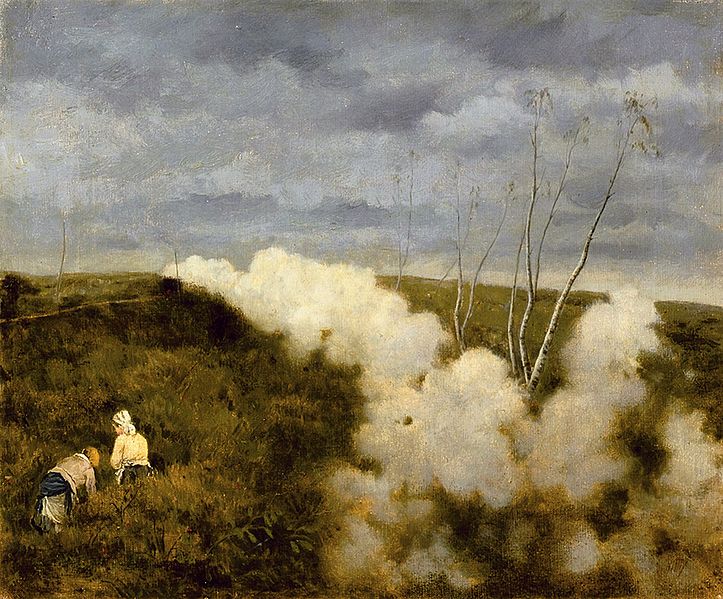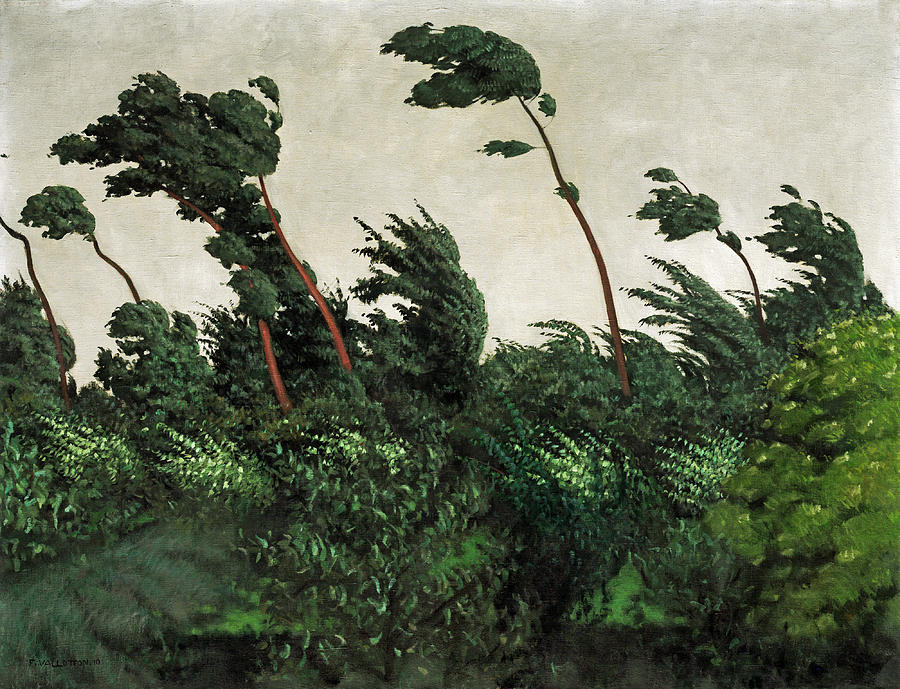- “The Times and the Seasons: Sky Media II (Kairos)” Chapter from: John Durham Peters. “The Marvelous Clouds: Toward a Philosophy of Elemental Media.”
- James Bridle, (2019) “Phenological Mismatch” Eflux. Online: https://www.e-flux.com/architecture/becoming-digital/273079/phenological-mismatch/
- Ted Chiang, Exhalation, 2019.
This week’s readings prompted me to think of several paintings I have encountered, two of which are noted below:

Giuseppe de Nittis - Passa Il Treno

Felix Vallotton - The Wind (1910)
I was really struck by the The Wind when I first saw it because I couldn’t recall, prior to that moment, ever seeing the representation of weather in an oil painting. Torrential rains (and the winds that often accompany them) figure largely in my own memories and imagination because they remind me of particular days of my early childhood in Dhaka, Bangladesh, where the rains mean both disaster and excitement.
Aside from that personal rememberance, all of the readings otherwise evoked a key theme of our class: the importance of noticing. An aspect of science fiction pieces I’ve read recently (I’m thinking particularly of the Exhalation, but also of Cixin Liu’s Three Body Problem trilogy) is that there seems to be a certain amount of optimism around the fact that if humanity were to notice a problem, we would act to fix it. There is a notion that faced with an existential crisis, the brightest and best minds would be occupied with its resolution. This does not seem to necessarily be the case if we are awake to climate change as our greatest existential crisis (which even the U.S. Department of Defense believes it is). These writers, have noted, however, that there is a certain amount of denial that goes along with existential crisis–I would be unjust to ignore their representations of generations of humanity who choose to ignore crisis, in favor of “self-unpreserving” narratives.
Perhaps, I am merely surprised to find myself facing the possibility of being in a generation that ignores largely the crisis, rather than among one that does not. For the most part, we seem to carry on. Given the dire pitch of recent warnings, it is surprising to find complacence to the new awareness of emergency–both in our societal response, and if I am uncomfortably honest, in my own actions (and lack thereof). I worry about the catharsis offered by criticality, even in the absence of material action.
